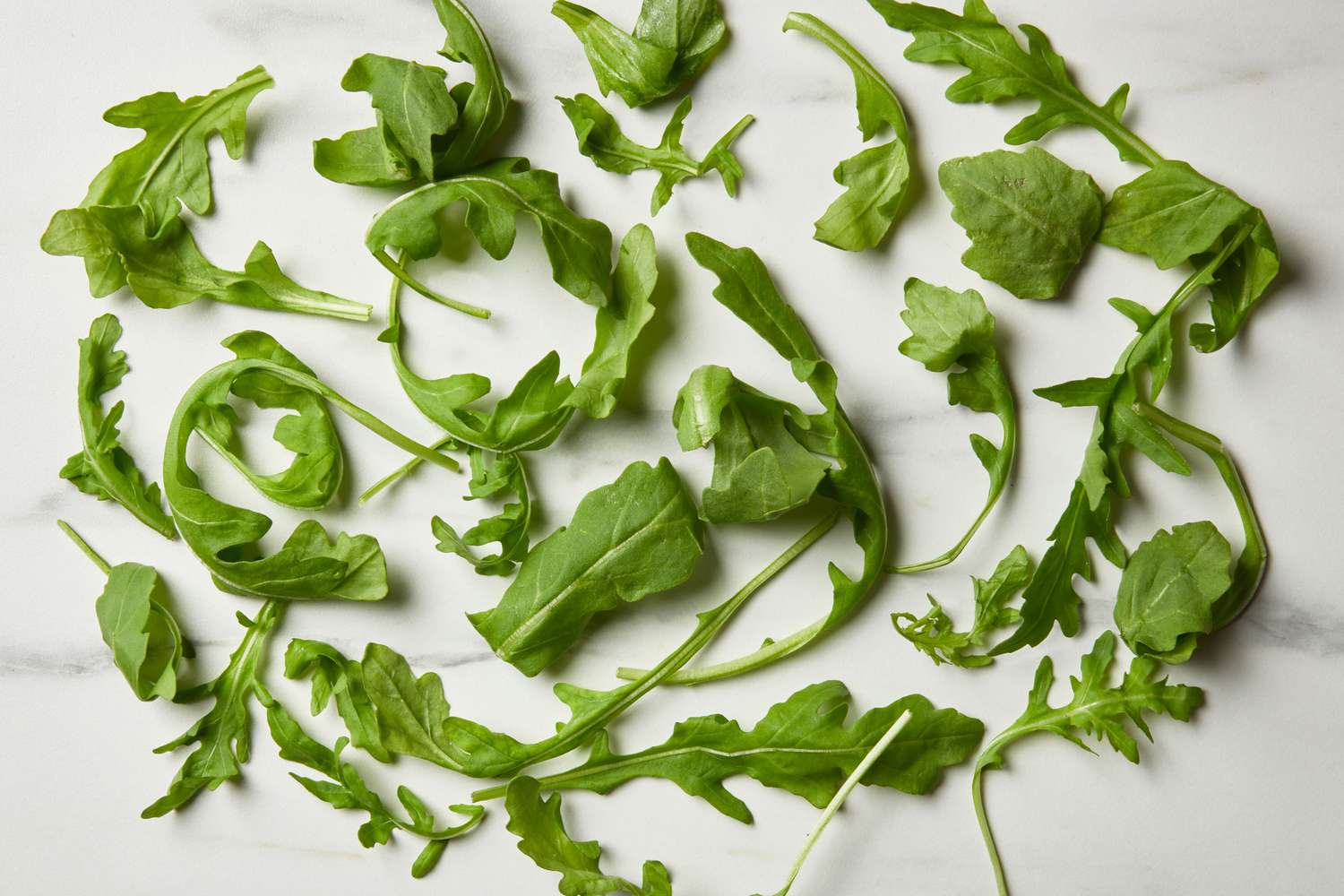
27 interesting facts about Arugula
- 👁️ 248
Arugula, also known as rocket, is a leafy green with a peppery flavor that has become a staple in salads and culinary dishes around the world. Originating from the Mediterranean region, this nutrient-rich vegetable has been consumed for its health benefits and distinctive taste since ancient times. Arugula is not just a flavorful addition to meals; it also boasts a range of health benefits, making it a favored choice among health enthusiasts and chefs alike. Its versatility in the kitchen allows it to be used in a variety of dishes, from simple salads to sophisticated main courses. Let’s dive into some interesting and informative facts about arugula that highlight its nutritional value, historical significance, and culinary uses.
- Arugula belongs to the Brassicaceae family, making it a relative of broccoli, kale, and Brussels sprouts.
- It is known by several names, including rocket, roquette, rugula, and rucola, depending on the region.
- Historically, arugula was not only consumed as food but also used for its medicinal properties, which were thought to be an aphrodisiac.
- The plant is rich in vitamin K, which plays a crucial role in bone health and blood clotting.
- Arugula is a good source of vitamin C, an antioxidant that supports immune function and skin health.
- It contains high levels of nitrate, which have been shown to lower blood pressure and enhance athletic performance.
- Arugula leaves are low in calories, making it an excellent choice for weight management diets.
- The peppery flavor of arugula is due to the presence of glucosinolates, compounds that are also linked to cancer prevention.
- Arugula can be eaten raw in salads, added to sandwiches, or used as a topping for pizzas after baking.
- It has a short growing cycle, making it an ideal crop for both commercial farming and home gardening.
- Arugula flowers, which are small and white with dark purple streaks, are also edible and often used as a decorative element in dishes.
- In addition to its leaves and flowers, arugula seeds are used to produce a flavorful oil.
- Ancient Romans used arugula both as a vegetable and a salad ingredient, mixed with other herbs and lettuces.
- It prefers cool weather and can become more bitter in taste when grown in hot conditions.
- Arugula has been cultivated in the Mediterranean area since the Roman era and was mentioned by several ancient authors for its health benefits.
- In the Middle Ages, arugula was grown in monastic gardens and used both as food and a medicinal herb.
- The plant is rich in folate, a B vitamin that is essential for pregnant women to support fetal development.
- Arugula’s leaves are usually harvested when they are young and tender, typically less than eight inches long.
- It is high in fiber, which supports digestive health and can help in managing blood sugar levels.
- The calcium found in arugula contributes to the health of teeth and bones.
- Beyond its health benefits, arugula is also used as a natural repellent in organic farming practices.
- The United States has seen a significant increase in arugula’s popularity since the 1990s, as part of the rising interest in Mediterranean cuisine.
- Arugula contains certain antioxidants that can help protect the eyes from age-related diseases.
- It can be easily grown in pots or garden beds, requiring only well-drained soil and some sunlight.
- Arugula’s natural spiciness can be balanced in dishes with the sweetness of fruits like pears or with the richness of cheeses like goat cheese.
- The plant can reseed itself, making it an easy addition to sustainable gardens.
- Cooking arugula slightly can reduce its bitterness and make it a versatile green for warm dishes.
Arugula is much more than just a leafy green; it’s a nutrient powerhouse with a rich history and a wide array of culinary applications. Its peppery taste adds depth to dishes, making it a favorite among food lovers and chefs. Beyond its flavor, arugula offers significant health benefits, from promoting heart health to supporting bone strength. Whether used fresh in salads or as a flavorful addition to cooked meals, arugula continues to be celebrated for its versatility and nutritional value. As we continue to discover and experiment with greens like arugula, we enrich our diets and pay homage to the ancient civilizations that first recognized its value.
Arugula, also known as rocket, is a leafy green with a peppery flavor that has become a staple in salads and culinary dishes around the world. Originating from the Mediterranean region, this nutrient-rich vegetable has been consumed for its health benefits and distinctive taste since ancient times. Arugula is not…